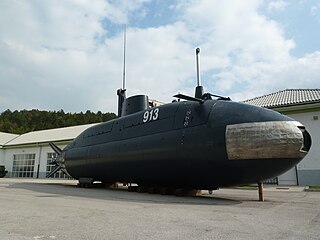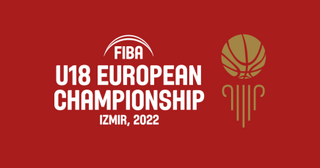 | |
| |
|---|---|
| Broadcast area | |
| Programming | |
| Format | Public |
| Ownership | |
| Owner | Radio Televizija Crne Gore (RTCG) |
| Radio Crne Gore | |
| Links | |
| Website | www.rtcg.me |
Radio 98 is a youth-oriented radio station in Montenegro. Its headquarters are in Podgorica.
 | |
| |
|---|---|
| Broadcast area | |
| Programming | |
| Format | Public |
| Ownership | |
| Owner | Radio Televizija Crne Gore (RTCG) |
| Radio Crne Gore | |
| Links | |
| Website | www.rtcg.me |
Radio 98 is a youth-oriented radio station in Montenegro. Its headquarters are in Podgorica.

Yugoslavia was a country in Southeast and Central Europe that existed from 1918 to 1992.

The Central European Initiative (CEI) is a forum of regional cooperation in Central and Eastern Europe, counting 18 member states. It was formed in Budapest in 1989. The body was developed on the basis of earlier experiences with The Alps-Adriatic Working Group. The CEI headquarters have been in Trieste, Italy, since 1996.

After a period of political and economic crisis in the 1980s, the constituent republics of the Socialist Federal Republic of Yugoslavia split apart, but the unresolved issues caused a series of inter-ethnic Yugoslav Wars. The wars primarily affected Bosnia and Herzegovina, neighbouring parts of Croatia and, some years later, Kosovo.

Yugoslavia participated in the Eurovision Song Contest 27 times, debuting in 1961 and competing every year until its last appearance in 1992, with the exceptions of 1977–1980 and 1985. Yugoslavia won the 1989 contest and hosted the 1990 contest.
South East Europe Media Organisation (SEEMO) is a regional non-governmental, non-profit network of editors, media executives and leading journalists in Southeast, South, East and Central Europe. The organization aims to create a bridge between international media activities and the media developments in the region. It has headquarters and national committees in several countries. In total 33 member states or territories are included in SEEMO: Albania, Armenia, Azerbaijan, Belarus, Bosnia-Herzegovina, Bulgaria, Croatia, Cyprus, Czech Republic, Estonia, Georgia, Greece, Hungary, Kazakhstan, Kosovo, Kyrgyzstan, Latvia, Lithuania, Malta, Moldova, Montenegro, North Macedonia, Poland, Romania, Russia, Serbia, Slovakia, Slovenia, Tajikistan, Turkmenistan, Turkey, Ukraine and Uzbekistan
AMC Networks International Central and Northern Europe is a Budapest, Hungary-based television company, owned by AMC Networks International.
Tomi Janežič is a Slovenian theatre director, professor at the Academy for Theatre, Radio, Film, and Television (AGRFT) in Ljubljana, Slovenia, and a psychodrama psychotherapist. He is also one of the founders and the artistic director of the Studio for Research on the Art of Acting which runs its activities mostly at Krušče Workcenter for Artistic Research, Creation, Residency and Education in Krušče, Slovenia.

The Adriatic Sea is a body of water separating the Italian Peninsula from the Balkan Peninsula. The Adriatic is the northernmost arm of the Mediterranean Sea, extending from the Strait of Otranto to the northwest and the Po Valley. The countries with coasts on the Adriatic are Albania, Bosnia and Herzegovina, Croatia, Italy, Montenegro, and Slovenia.
The Council of the Bishops' Conferences of Europe is a conference of the presidents of the 33 Roman Catholic episcopal conferences of Europe, the Archbishop of Luxembourg, the Archbishop of Monaco, Maronite Catholic Archeparch of Cyprus, the Roman Catholic Bishop of Chişinău, the Ruthenian Catholic Eparch of Mukacheve, and the Apostolic Administrator of Estonia.

Arena Sport is a regional pay television sports network. It consists of 3 premium and 11 regular channels and is coverage area includes Bosnia and Herzegovina, Croatia, Montenegro, North Macedonia, Serbia and Slovenia.

The Una-class submarine was a class of six midget submarines built for the Yugoslav Navy at the Brodogradilište specijalnih objekata during the 1980s. They were designed with the purpose of laying small minefields and transporting naval special forces, with or without their submersibles, in shallow waters that were inaccessible for larger submarines. Due to their mission profile that called for a small design as well as the need to stay undetected, they lacked torpedo armament and a generator for battery recharging.
Conference of Western Balkan States was a 28 August 2014 conference of heads of states and governments of Western Balkans region initiated by German chancellor Angela Merkel. An idea for organization of conference came in light of the celebration of the 100th anniversary of the beginning of World War I. It is the first conference in this framework and organizers expressed their desire to continue it in future with Vienna and Paris mentioned as a potential next hosts after Berlin. Günther Oettinger confirmed at conference that event will be organised annually with Vienna as a host city in 2015 and Paris in 2016.

The Socialist Federal Republic of Yugoslavia was one of the founding members of the Non-Aligned Movement. Its capital, Belgrade, was the host of the First Summit of the Non-Aligned Movement in early September 1961. The city also hosted the Ninth Summit in September 1989.

The Church of Jesus Christ of Latter-day Saints in Croatia refers to the Church of Jesus Christ of Latter-day Saints and its members in Croatia. The first missionaries arrived in Croatia in 1974. In 2022, there were 633 members in 6 congregations.

The 2022 FIBA U18 European Championship was the 37th edition of the European basketball championship for national under-18 teams. It was played from 30 July to 7 August 2022 in İzmir, Turkey. Spain men's national under-18 basketball team won the tournament and became the European champions for the fifth time.

The Agreement on Succession Issues of the Former Socialist Federal Republic of Yugoslavia is an international agreement on shared state succession of the Socialist Federal Republic of Yugoslavia reached among its former constituents republics following the breakup of the country in early 1990s.